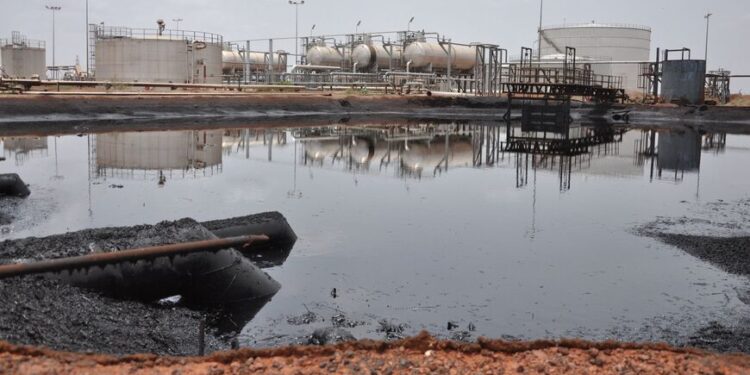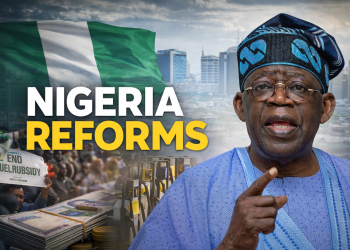South Sudan is currently exploring the possibility of entering into a $12.9 billion oil-for-cash agreement with a relatively unknown Dubai-based company.
The company seeks to lend the country $12.9 billion in exchange for oil in a deal that may last for 20 years, making it one of the largest ever oil-for-cash deals and the latest such intervention in a struggling African country.
However, according to the UN’s findings, the agreement is nearly twice the GDP of South Sudan, a nation plagued by hunger and turmoil.
READ MORE: Dr Arikana, Enabulele, Others Team Up For Ubuntu Awakening Summit
The majority of the allocated funds, around 70%, are designated for infrastructure projects as outlined in the reports reviewed by the investigators. But a loan of such magnitude, approximately five times the country’s existing external debt, is expected to heavily restrict South Sudan’s oil revenues for an extended period.
The report also suggests that servicing a loan of this magnitude would likely absorb a significant portion of South Sudan’s oil revenues for an extended period.
As per the terms, South Sudan would receive $10 less per barrel of oil than the international benchmark price and this arrangement is purported to last for up to twenty years.
South Sudan’s GDP growth prediction
The gross domestic product (GDP) in current prices in South Sudan was forecast to continuously increase between 2024 and 2029 by in total of 3.2 billion U.S. dollars (+49.08 percent). After the fifth consecutive increasing year, the GDP is estimated to reach 9.7 billion U.S. dollars and therefore a new peak in 2029.
The gross domestic product at current prices is defined based on the GDP in national currency converted to U.S. dollars using market exchange rates (yearly average). The GDP represents the total value of final goods and services produced during a year.
Between South Sudan And The Dubia Firm
This agreement represents one of the biggest oil-for-cash transactions ever negotiated and has attracted considerable interest from the United Nations, given the specifics of the agreement.
According to Bloomberg, the information was revealed in a report by a panel of investigators appointed by the United Nations Security Council. In the report, it was noted that Dubai-headquartered Hamad Bin Khalifa Department of Projects (HBK DOP) and South Sudan’s former finance minister Bak Barnaba Chol reached a consensus on the loan conditions.
The understanding was purportedly formalized through documentation signed between December 2023 and February 2024.
What you should know
South Sudan’s track record with such agreements is troubling, as the country has faced legal defeats due to non-payment. According to UN investigators, South Sudan paid $95 million in fees, interest, and costs for a $446 million credit, resulting in a loss of nearly 25% of potential government revenue. This loss could have been avoided if the oil had been sold through spot tender contracts, as stated in a report released in April 2021. The country heavily relies on oil exports, which make up around 90% of its income.
In 2019, South Sudan agreed to forego new oil-backed arrangements to secure a $52 million support package from the IMF. The decision coincided with a statement from the IMF that oil-backed loans are “non-transparent, costly, encourage misuse and complicate fiscal management.”
UAE-based corporations have consistently acted as creditors to South Sudan. In 2022, investigators appointed by the United Nations revealed that specific loan funds were deposited into South Sudan government accounts located in the UAE, instead of being directed to the country’s designated oil revenue account.
Chinese state and private companies, as well as international commodity traders, have been most hungry for African resource-backed loans in the past. The duration of the UAE firm’s loan places it closest in profile to previous Chinese deals,
In their report, the UN-mandated investigators raise concerns that South Sudan continues to contract oil-for-cash loans. “Despite South Sudan’s difficulties managing oil-backed debt, the panel has reviewed documents that indicate the government is negotiating what would be its largest ever oil-backed loan,” the investigators wrote.










